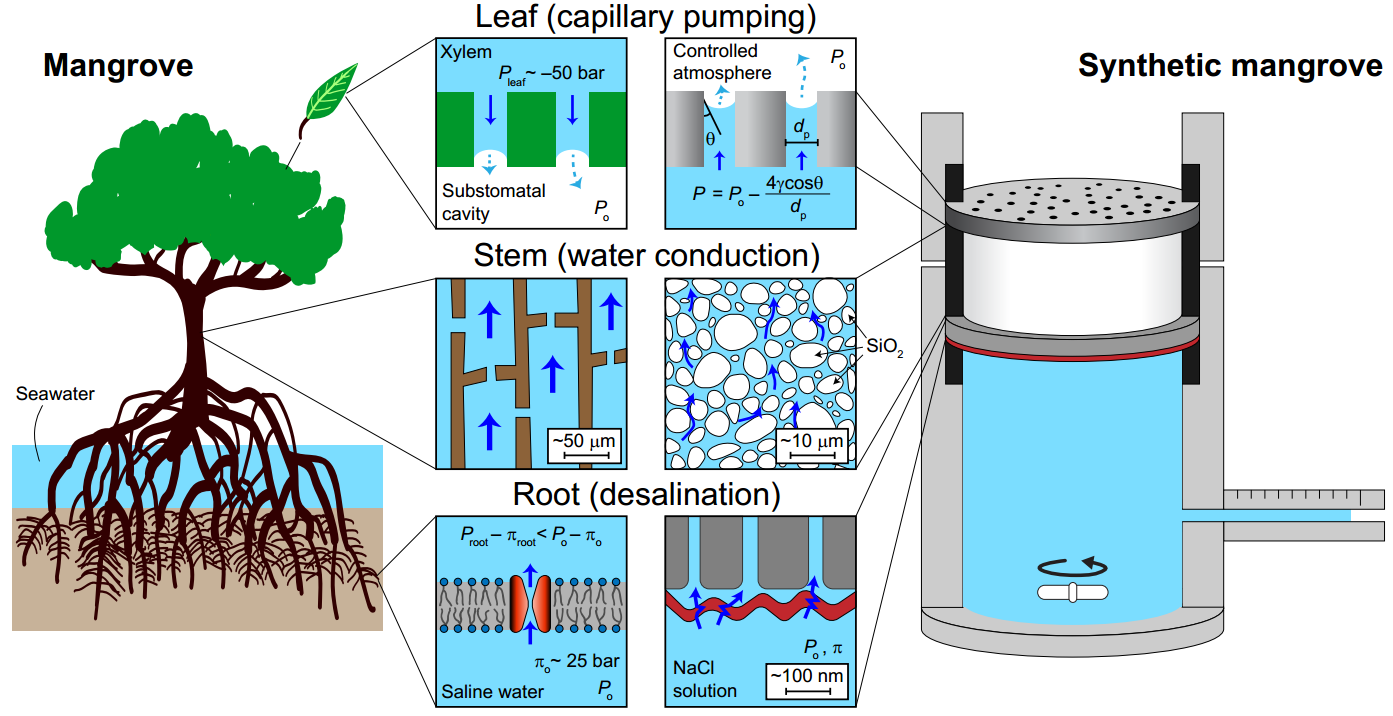Recently, Dr.Wang Yunkun, from School of Environmental Science and Engineering, SDU and the collaborators Jongho Lee, Jay R. Werber, and Menachem Elimelech from University of British Columbia, University of Minnesota, and Yale University, respectively, have made significant progress in investigating the desalination mechanism of biomimetic mangrove tree. The research article entitled "Capillary-driven desalination in a synthetic mangrove" was published on Science Advances(10.1126/sciadv.aax5253) on Feb 21, 2020.
Mangroves are salt-tolerant trees that grow in tropical and subtropical coastal regions around the world, which are important in maintaining coastal ecological balance and biodiversity. To survive in their saline or brackish environments, mangroves have evolved special salt exclusion and water transport mechanisms under the capillary pressure-driven force. However, the negative pressure-driven desalination of brackish and saline waters in mangroves, per the cohesion-tension theory, has not been mimicked in a synthetic system.
In this work, Dr. Wang and the collaborators present a synthetic mangrove that captures the main features of natural mangrove trees: a nanoporous anodized aluminum oxide (AAO) membrane or a poly(hydroxyethyl methacrylate)–based hydrogel as leaves (capillary pumping), a porous fritted silica filter as the stem (water conduction), and a polymeric RO membrane as the root (desalination).

Design elements and water flow in the synthetic mangrove.From Wang et al., Sci. Adv. 2020; 6: eaax5253
Their experimental results demonstrated that the synthetic leaves can generate highly negative pressures that enable desalination through the RO membrane. Even under such highly metastable states, the synthetic mangrove maintains stable water uptake and desalination of saline water. Their work supports the cohesion-tension theory for desalination in mangroves and highlights the potential to use highly negative capillary pressures for diverse engineering applications.
The link of this paper:https://advances.sciencemag.org/content/6/8/eaax5253
Article Metrics:https://scienceadvances.altmetric.com/details/76467942/news
Source: School of Environmental Science and Engineering
Written by:Qiu Xiao
Edited by: Che Huiqing